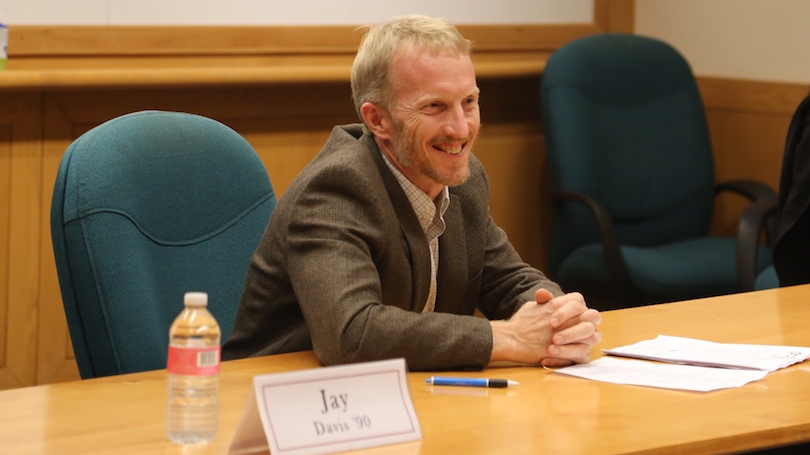
- Public Policy
- Leadership
- Funding
- News & Events
- About the Center
Back to Top Nav
Back to Top Nav
Back to Top Nav
Back to Top Nav
Our first session on Thursday, September 15th, 2016 was with Jay Davis, the director of the First Year Student Enrichment Program (FYSEP) and the King Scholars Program at Dartmouth. Davis began his session by explaining that the RLF program will help us answer the question: “who am I, and who I ought to be?” “We can all be better leaders,” Davis explained, “and I don’t want to work with anyone who thinks that they have nothing left to learn.”
In the first activity, we all went around the room and responded to the question: what leadership quality do you most value? Intuition, flexibility of thought, empathy, clarity, humility, and self-awareness were among the traits that fellows mentioned. What struck me was that no two people came up with the same response to this relatively simple and straightforward question.
When my turn came to speak, I spoke about how I thought that the best leaders were the ones that were ambitious not for themselves, but for the organization of which they are a part. This idea really struck out to me in Jim Collins’ chapter from our summer reading, On Leadership. I hope to develop a resilience and drive to serve whatever organization where I end up working.
In the recap discussion, Davis spoke about his own views on the most important qualities of leaders. Among the several traits that he spoke about, Davis underscored his belief in the value of a sense of humor in a leader – something that I am also coming to recognize is very important. Davis also is a firm believer that groups should not hold meetings without a clear purpose that no person could accomplish individually. This insight made me reconsider the value of some of the meetings that I have attended for student organizations, and how I can hold effective meetings in the future.
Finally, we completed the Compass Points activity, which helped us reflect on our leadership styles and how we relate to one another. We broke up into groups: North, South, West, and East. People who identified with North were focused on getting things done efficiently, the South group considered empathy and group cohesion their highest priorities, and Westerners were most attuned to the small details that bring a project to fruition. I joined the East group, which is the personality type that looks to the big picture and thinks about long-term goals. We discussed the strengths and weaknesses of our group affiliation, and we also thought about which personality types with whom it is most difficult to interact. At the end of the activity, Davis remarked that in all of his experience leading this activity, he had never seen a South group that was composed mostly of men. Over the course of our weekend retreat at Lake Morey for the next two days, we continued to discuss our Compass Points affiliations, and whenever a group member did something particularly in line with their type, someone inevitably would remark, “you’re such a North!” I think that this first session set the tone for a great year in the Rockefeller Leadership Fellows Program.
-Submitted by Julie Marino '17, Rockefeller Leadership Fellow